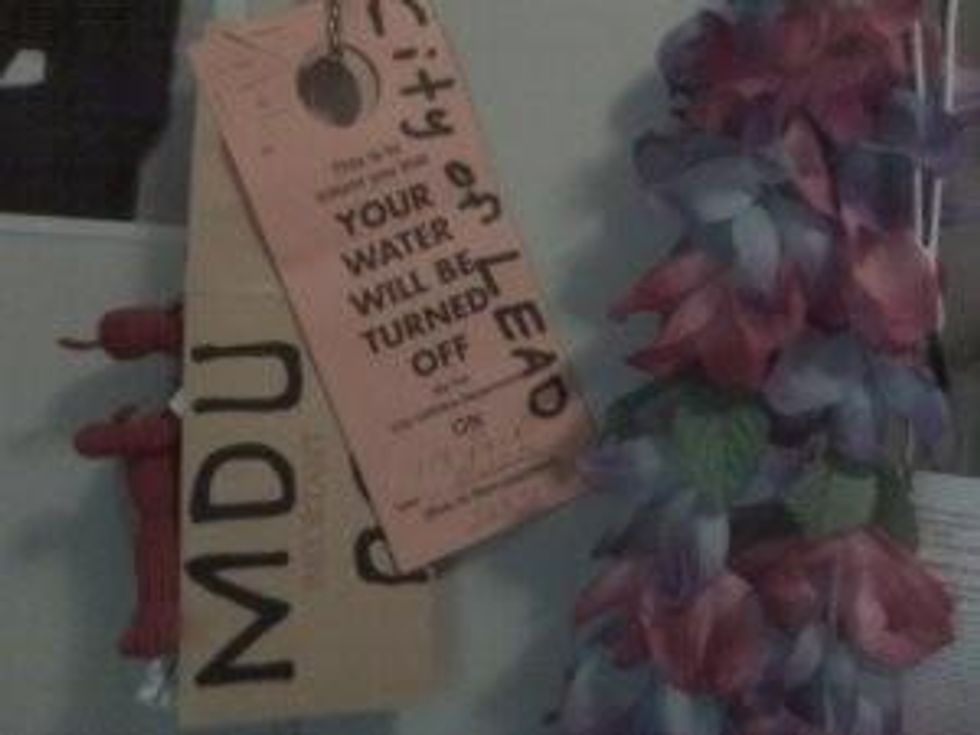When I saw the cut to the low income energy assistance programs proposed by President Obama in his budget, I knew that meant more energy/utility shut-off notices for people already struggling all over the United States. The cold day in hell has arrived for many patients and many caregivers who already find their budgets bursting from the costs of healthcare insurance, co-pays, deductibles, and out-of-pocket medical expenses, and their bank accounts strained from the loss of income and unemployment that has marked recent months for millions and millions of people.
"The president's office says it needs to cut funding from programs like LEAP to control the federal budget," read the news reports.
All I can see is the bright orange water shut-off notice hanging on the front door or the more subtle but large manila envelope that holds the gas shut-off on a door hanger. I kept my last shut-off notices and they now hang in my computer room at home as a reminder - as if the pain and humiliation ever really fades away. The notices are like an advertisement to your neighbors that you cannot pay your bills - big, bright reminders of your failure to buck up.
It was 2006. My husband was very sick and struggling in his post-open heart surgery months. I worked full time and then some to try to make up for his inability to work in my post cancer-treatment days, but the bills just kept pouring in. Arriving home from a 10-hour workday to find the shut-offs was followed by collection calls to our home from doctors' offices and hospitals and providers (and the nasty collection agencies they hired) to whom our insurance had paid some -- but not all -- of our healthcare costs. Evenings were terrible. I danced between trying to stay cheerful for my husband and for his health's sake and trying to handle the financial upheaval. And I stressed out about how to keep the power on, how to keep the gas on, and how to keep the water flowing.
Many nights, I wondered if death for me would be a more sensible alternative - perhaps without my meager income to consider, perhaps some of the safety net programs would at least keep my husband alive. I sat at my desk and at my computer, writing pieces to make some money and bouncing back and forth from bank statement to bills to email accounts trying to figure out some way to keep the ship afloat.
The years during which we qualified for LEAP assistance were easier. LEAP helped take some of the strain off. The lights stayed on. The gas stayed on. LEAP helped us winterize one year and lower some of the bills so we didn't need as much help. We only had the help when we absolutely had to have the help.
But now President Obama wants to cut LEAP. He doesn't think it's a priority. The pain has to be spread around, he says, as the nation's budget woes unfold. I wonder if his daughters ever saw a shut-off notice. I hope not, but I wish he could internalize what it might feel like for them.
When LEAP gets cut, as it no doubt will whether it's in the President's plan or the Republican's plan or the Congressional Democrat's plan, an awful lot of suffering in the night will be the result for people like me and like my husband who got sick and just needed some temporary support.
And notice I haven't even talked about the health implications and costs of living a night or two without heat or water when you are trying to heal from surgery or recover from illness - or the costs of stress-related illnesses so well documented from heart troubles to headaches, sleep disturbance to digestive upset. Why inflict more pain, why inflict more cold, why? It sure isn't to save money. To prove a point? That we will crush people - though it is unseemly - to show our fiscal conservatism?
This is but one example of the pain. The cold days in hell are a reality as our nation's elected officials try to out-cut one another and show how they are willing to inflict pain on those already hurting. I thought somewhere along the line I learned that inflicting pain on creatures when they are already down and out is a sign of weakness not of strength. Somehow I think the budget can be balanced by cutting suffering not creating more of it. We should keep one another warm. Or we should just admit that we like telling the weak and the poor that hell is their new dwelling place.
